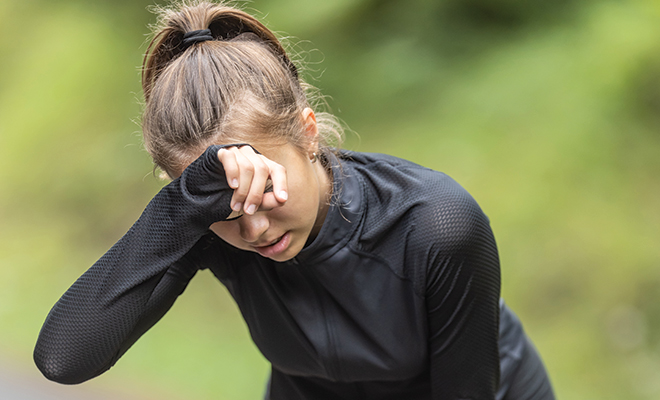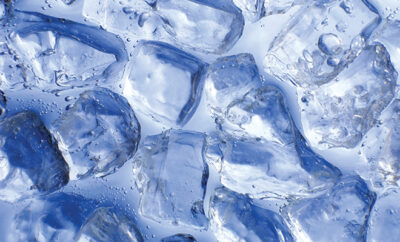
Feelin’ Hot, Hot, Hot! Avoid Over-Heating This Summer
By this time each summer, we are knee-deep in heat waves and possible record temperatures, and this year will be no different. As extreme warmth increases in the United States, climate projections indicate that the “dog days” of summer will be more frequent and intense each decade. This year, the CDC predicts over 67,000 emergency department visits due to heat and over 700 heat-related deaths.
The good news is that heat-related illness and death have lessened over the several years. Experts say it could be due to better weather forecasting, earlier warnings of heat systems and better access to air conditioning. But extreme heat occurrences remain a cause of preventable heat-related illnesses that vary in seriousness and symptoms. Some of the most common medical heat issues can be one or more of the following:
Heat Rash
Also known as prickly heat, this red, stinging rash develops when you’re hot and sweaty. It’s most likely to show up in areas where sweat gets trapped, such as inside your elbows and behind your knees.
Heat Cramps
Painful muscle cramps can strike when you’re exercising in hot weather. They develop when you sweat so much that your body loses salts and fluids.
Heat Exhaustion
More serious than heat rash or cramps, heat exhaustion occurs when your body can’t cool itself through sweating. At the first sign of heat exhaustion, it is important to take steps to help decrease body temperature and cool down. Move to an air-conditioned place. Take a cold shower, spray a cold garden hose or place cold compresses on the skin. Drink plenty of fluids; think chilled water, a sports drink containing electrolytes or other nonalcoholic beverage without caffeine. Remove tight or extra clothing layers.
If symptoms don’t improve after about an hour of rest and fluids, calling a healthcare provider is the next step. If symptoms worsen, call 911 or go to the emergency room. Left untreated, heat exhaustion can progress to heatstroke. Injury and death can result from heat stroke and related conditions.
Heat Sroke
Sometimes called sunstroke, heat stroke is the most severe heat-related illness. During heat stroke, a person’s body temperature climbs quickly to dangerous levels. Often, people with heat stroke stop sweating. Unlike heat exhaustion, a heat stroke requires immediate medical attention. Since heat stroke is much more serious, timing is important. Recognizing heat stroke will determine how quickly someone will receive help and treatment. Signs of heat stroke may include dizziness; fever over 103 degrees Fahrenheit; fatigue; headaches; changes in behavior such as confusion, agitation and slurred speech; heavy sweating or dry skin if sweating has stopped; nausea and vomiting; rapid breathing, heartrate or pulse.
If heat stroke is suspected, it is vital to act quickly. Call 911 immediately and move the person to a cooler place. Use cold compresses, wet towels, a cold shower or other methods to reduce body temperature.
Summer wouldn’t be summer without hot outdoor activities but playing it smart is important. To maintain a safe body temperature, we must get rid of excess heat. These tips may help you keep your cool while enjoying your favorite seasonal fun.
Wear the right stuff. Whether you’re exercising or doing yard work, choose loose, comfortable clothing. You want to be able to move freely while keeping protected from the sun.
Sun block, sunscreen-treated clothing and brimmed hats add an additional layer of protection. Wear sun block even if it’s cloudy and look for sunscreens that say “broad spectrum” or “UVA/UVB protection” on the label.
Plan accordingly. Try to limit outdoor activity to when it’s coolest, such as morning and evening hours. Take a break in the shade to give the body a chance to recover.
Let fluids flow. Regardless of how active you are, drink more water and drink before feeling thirsty. Avoid alcoholic and sugary drinks and sip on a sports drink to help replace electrolytes and salt.
Manage your risks. Anyone is at risk to the health effects of heat, but some are more vulnerable including pregnant women, people with heart or lung conditions, older adults, young children, athletes and outdoor workers. People who take diuretics or other medications are more susceptible to heat effects, as well as those who have experienced heat illness in the past. Talking with a doctor and using proper precautions can keep people safer when spending time outdoors.
Watch body cue. Being lightheaded and dizzy are the first signs of heat issues. Listen to your body and your instincts.
Having fun-in-the sun is definitely one of the best things about summer, but heat can test our bodies and our systems. Heat-related illnesses are preventable. Knowing the symptoms and what to do if you or a loved one show signs of having issues will help you keep your cool when the heat is on.
Sources: ephtracking.cdc.gov, health.clevelandclinic.org, mayoclinic.org and medstarhealth.org.







